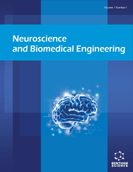Abstract
Brief cognitive screening tests performed by primary care physicians provide effective information for Alzheimer's patients and families regarding recent changes in daily living, behavior, intellectual functioning, and mood. In this review, we consider information in the literature concerning the practicality and accuracy of brief cognitive screening instruments currently utilized in primary care. Nine brief screening tests met our inclusion criteria and we discuss the characteristics, applicability, challenges, and development of each. We also review the relevance of the tactile sense, a novel element that improves the sensitivity of current screening methods. Finally, we discuss how new approaches involving tactile discrimination may offer the ability to discriminate patients with Alzheimer's disease from normal subjects.
Keywords: Alzheimer, behavior, intellectual functioning, cognitive impairment, hypertension, diabetes.
Graphical Abstract
 10
10

